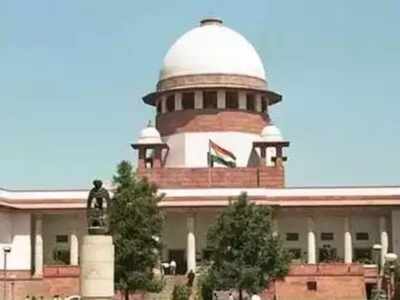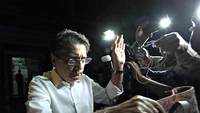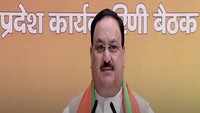
NEW DELHI: In a rare action, the Supreme Court collegium has recently returned all 15 names of advocates recommended by the Patna High Court Collegium last year for their elevation as judges of the high court. These are in addition to half-a-dozen others recommended from among the district judges which too have not been accepted, sources said. As on September 4, the Patna High Court has 30 judges’ post vacant against a sanctioned strength of 53.
According to sources, the apex court collegium has not recorded any reasons for turning down all the recommendations made in a list of 15 sent to the government and the SC sometime in July last year. Appointment of HC judges involves a lengthy process. After these recommendations are sent to the Centre and the SC by a High Court collegium, comprising the chief justice and two senior most judges of the HC, the union Law ministry runs an independent background verification of each candidate through the Intelligence Bureau. It writes to the state government and the governor for their opinion and carries out detailed checks against eligibility criteria.
It has rarely happened that the SC collegium has disagreed with all the names recommended by a HC collegium and forwarded by the Centre after background verifications. However, the disagreement of the SC has come following allegations that caste played a prominent role behind the recommendations and the list of 15 ignored representations from the backward communities.
A writ petition was also filed in the Patna High Court alleging favouring certain castes in making these recommendations. Though the Patna HC rejected the petition and later an SLP, the SC, the prime minister’s office and union law ministry received several complaints against candidates recommended.
In 2018, a similar controversy had erupted in the recommendations made by the Patna HC collegium which led to enormous delay in finalising the names. Sources in government had then confirmed that the six names recommended by the HC collegium warranted closer scrutiny following complaints of nepotism and merit being overlooked.
That same year, the Centre had expressed reservations on around 50% of the names from a list of 126 candidates recommended by at least 16 HC collegiums for judgeship. The objections conveyed to the SC collegium ranged from failure of the advocates to meet the minimum income requirement to issues regarding probity and competence.
On its own, the union law ministry evaluates each recommendation on the scale of merit and integrity, review of cited judgements, reputation of the lawyer in the legal fraternity, both personal and professional, and whether his income meets the threshold -- Rs 7 lakh per annum in the preceding five years -- set for the purpose.
According to sources, the apex court collegium has not recorded any reasons for turning down all the recommendations made in a list of 15 sent to the government and the SC sometime in July last year. Appointment of HC judges involves a lengthy process. After these recommendations are sent to the Centre and the SC by a High Court collegium, comprising the chief justice and two senior most judges of the HC, the union Law ministry runs an independent background verification of each candidate through the Intelligence Bureau. It writes to the state government and the governor for their opinion and carries out detailed checks against eligibility criteria.
It has rarely happened that the SC collegium has disagreed with all the names recommended by a HC collegium and forwarded by the Centre after background verifications. However, the disagreement of the SC has come following allegations that caste played a prominent role behind the recommendations and the list of 15 ignored representations from the backward communities.
A writ petition was also filed in the Patna High Court alleging favouring certain castes in making these recommendations. Though the Patna HC rejected the petition and later an SLP, the SC, the prime minister’s office and union law ministry received several complaints against candidates recommended.
In 2018, a similar controversy had erupted in the recommendations made by the Patna HC collegium which led to enormous delay in finalising the names. Sources in government had then confirmed that the six names recommended by the HC collegium warranted closer scrutiny following complaints of nepotism and merit being overlooked.
That same year, the Centre had expressed reservations on around 50% of the names from a list of 126 candidates recommended by at least 16 HC collegiums for judgeship. The objections conveyed to the SC collegium ranged from failure of the advocates to meet the minimum income requirement to issues regarding probity and competence.
On its own, the union law ministry evaluates each recommendation on the scale of merit and integrity, review of cited judgements, reputation of the lawyer in the legal fraternity, both personal and professional, and whether his income meets the threshold -- Rs 7 lakh per annum in the preceding five years -- set for the purpose.
Download
The Times of India News App for Latest India News

Coronavirus outbreak
Trending Topics
LATEST VIDEOS
India
 ICICI-Videocon case: Chanda Kochhar's husband arrested by ED over money laundering allegations
ICICI-Videocon case: Chanda Kochhar's husband arrested by ED over money laundering allegations  Maharashtra, Telangana assembly sessions amid strict preventive measures for Covid-19
Maharashtra, Telangana assembly sessions amid strict preventive measures for Covid-19  This semi-organic farm is making Manipur self-reliant for vegetable needs
This semi-organic farm is making Manipur self-reliant for vegetable needs  Metro services resume across major cities: First day first show
Metro services resume across major cities: First day first show  Shocking: 35-year-old woman forced to deliver baby on roadside in J&K’s Samba
Shocking: 35-year-old woman forced to deliver baby on roadside in J&K’s Samba  PM Modi has led from front to fight Covid-19: JP Nadda
PM Modi has led from front to fight Covid-19: JP Nadda
More from TOI
Navbharat Times
Featured Today in Travel
Quick Links
Coronavirus in MumbaiCoronavirus in KolkataCoronavirus in HyderabadCoronavirus in DelhiCoronavirus in BangaloreCoronavirus symptomsCoronavirus in IndiaWhat is CoronavirusCoronavirus NewsSolar EclipseNPRWhat is NRCCAB BillCAB and NRCRTI BillPodcast newsLok SabhaShiv SenaYSRCPCongressBJP newsUIDAIIndian ArmyISRO newsSupreme Court
Get the app



